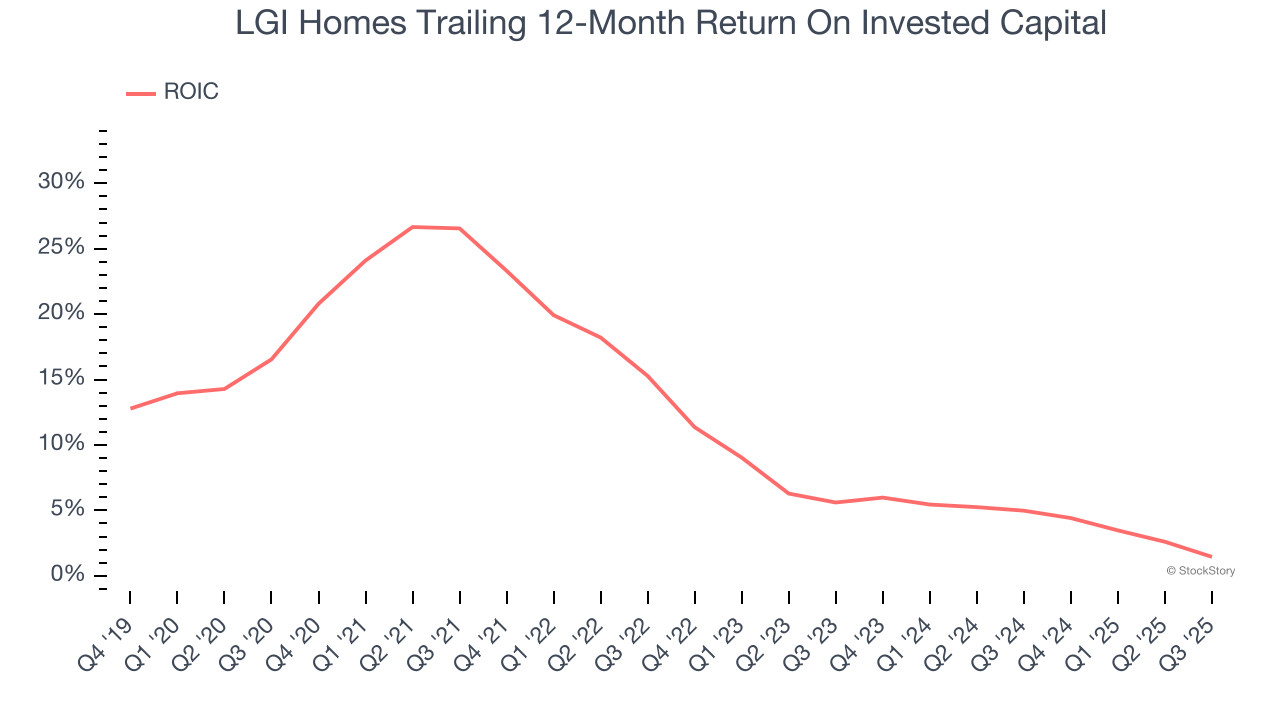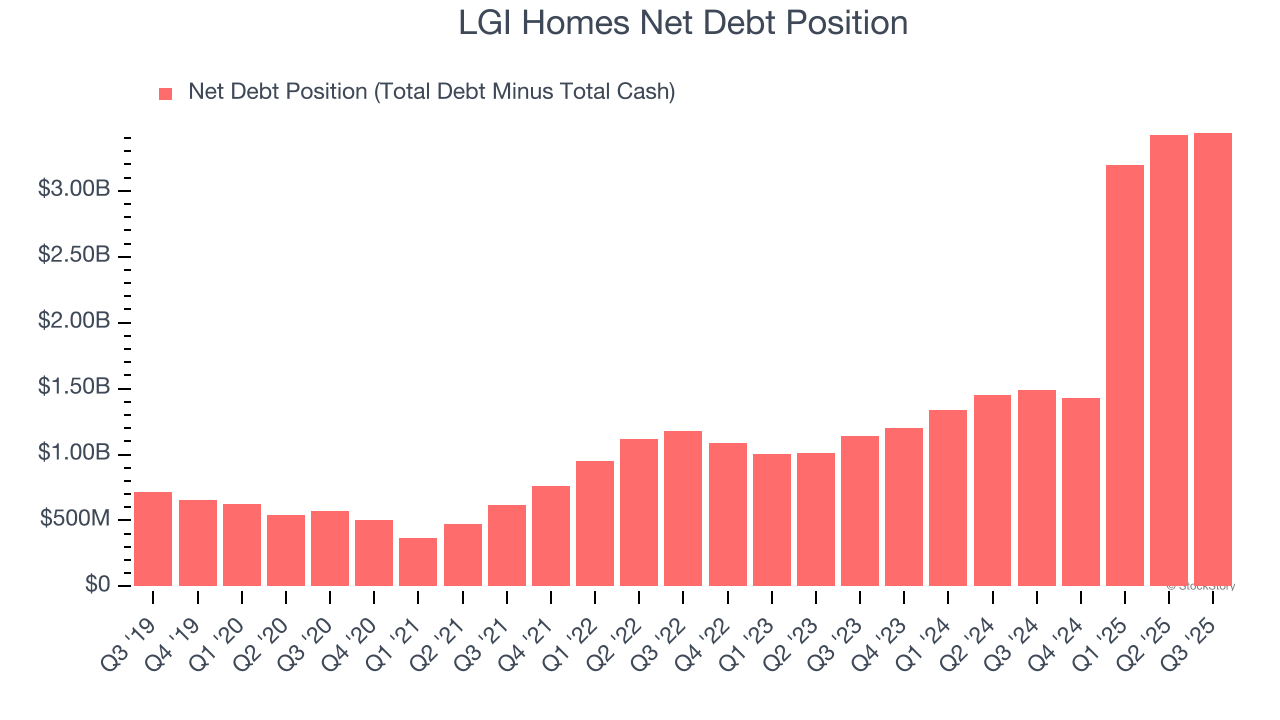
Over the past six months, LGI Homes’s stock price fell to $44.28. Shareholders have lost 15.8% of their capital, which is disappointing considering the S&P 500 has climbed by 13.7%. This was partly driven by its softer quarterly results and may have investors wondering how to approach the situation.
Is now the time to buy LGI Homes, or should you be careful about including it in your portfolio? See what our analysts have to say in our full research report, it’s free for active Edge members.
Why Do We Think LGI Homes Will Underperform?
Even with the cheaper entry price, we're sitting this one out for now. Here are three reasons we avoid LGIH and a stock we'd rather own.
1. Backlog Declines as Orders Drop
In addition to reported revenue, backlog is a useful data point for analyzing Home Builders companies. This metric shows the value of outstanding orders that have not yet been executed or delivered, giving visibility into LGI Homes’s future revenue streams.
LGI Homes’s backlog came in at $498.7 million in the latest quarter, and it averaged 10.4% year-on-year declines over the last two years. This performance was underwhelming and shows the company is not winning new orders. It also suggests there may be increasing competition or market saturation. 
2. New Investments Fail to Bear Fruit as ROIC Declines
ROIC, or return on invested capital, is a metric showing how much operating profit a company generates relative to the money it has raised (debt and equity).
We like to invest in businesses with high returns, but the trend in a company’s ROIC is what often surprises the market and moves the stock price. Over the last few years, LGI Homes’s ROIC has unfortunately decreased significantly. We like what management has done in the past, but its declining returns are perhaps a symptom of fewer profitable growth opportunities.

3. Short Cash Runway Exposes Shareholders to Potential Dilution
As long-term investors, the risk we care about most is the permanent loss of capital, which can happen when a company goes bankrupt or raises money from a disadvantaged position. This is separate from short-term stock price volatility, something we are much less bothered by.
LGI Homes burned through $171.3 million of cash over the last year, and its $3.50 billion of debt exceeds the $61.98 million of cash on its balance sheet. This is a deal breaker for us because indebted loss-making companies spell trouble.

Unless the LGI Homes’s fundamentals change quickly, it might find itself in a position where it must raise capital from investors to continue operating. Whether that would be favorable is unclear because dilution is a headwind for shareholder returns.
We remain cautious of LGI Homes until it generates consistent free cash flow or any of its announced financing plans materialize on its balance sheet.
Final Judgment
We cheer for all companies making their customers lives easier, but in the case of LGI Homes, we’ll be cheering from the sidelines. Following the recent decline, the stock trades at 10.5× forward P/E (or $44.28 per share). This multiple tells us a lot of good news is priced in - you can find more timely opportunities elsewhere. Let us point you toward one of our top digital advertising picks.
Stocks We Like More Than LGI Homes
The market’s up big this year - but there’s a catch. Just 4 stocks account for half the S&P 500’s entire gain. That kind of concentration makes investors nervous, and for good reason. While everyone piles into the same crowded names, smart investors are hunting quality where no one’s looking - and paying a fraction of the price. Check out the high-quality names we’ve flagged in our Top 9 Market-Beating Stocks. This is a curated list of our High Quality stocks that have generated a market-beating return of 244% over the last five years (as of June 30, 2025).
Stocks that have made our list include now familiar names such as Nvidia (+1,326% between June 2020 and June 2025) as well as under-the-radar businesses like the once-small-cap company Comfort Systems (+782% five-year return). Find your next big winner with StockStory today.
StockStory is growing and hiring equity analyst and marketing roles. Are you a 0 to 1 builder passionate about the markets and AI? See the open roles here.
